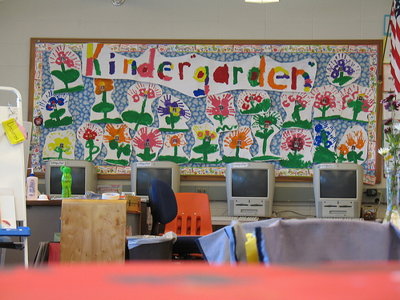Last October, Gov. Jim Doyle signed a law that required Wisconsin children to complete kindergarten before being admitted to first grade. This law goes into effect this academic year.
Prior to the new law, kids were not required to attend school until age 6.
The law went into affect to stress the importance of early education and to allow school systems to identify kids who are not attending school as early as possible.
Mary O’Connell is the director of LifeWays Early Childhood Center, 3224 N. Gordon Pl. Lifeways provides child care and preschool programs for children up to age 6, but the new law does not allow parents to choose one of LifeWays’ programs for their child after age 4.
“Over the years, we’ve had several parents choose to leave their children at LifeWays until they are ready for first grade, because they found it met their child’s needs,” says O’Connell. “An energetic child, for example, might be much better served in LifeWays’ KinderForest program or at his own home than in a classroom setting. Parents should be able to choose.”
O’Connell feels this new law is insulting to parents who wish to homeschool their kids for preschool and kindergarten.
“In effect, it’s saying that a parent who chooses to keep his or her child at home until first grade couldn’t possibly do as good of a job educating his or her child as a kindergarten teacher who has up to 20 children to look after,” she says.
Angie Aranda teaches first grade for Milwaukee Public Schools, and she sees the new law as a mix of things.
“I think that because of the expectations for students entering first grade, it is very important that students attend kindergarten first. However, I think a kindergarten education can be achieved in a multiple ways — not just through attending a traditional school, but also through homeschooling,” says Aranda.
Aranda has taught in the public school system for eight years, but supports parents who choose to homeschool kindergartners.
“I believe that most kids do benefit from attending a regular kindergarten, but for those parents who feel they would like to wait an additional year before having their children attend traditional school, homeschooling is an appropriate option for meeting the kindergarten requirement,” Aranda says.
O’Connell takes the issue a step further, suggesting that large, high-energy classroom might contribute to behavior problems.
“I don’t think there’s any coincidence that thousands of children (mostly boys) are being diagnosed as ADHD and put on Ritalin to cope with the demands of the academic environment. At least Wisconsin parents had a choice to keep their little guy home one more year and let him mature before putting him in that setting. Now that choice has been taken away,” says O’Connell.
Meredith Philips has a 2-year-old son and she, too, sees the pros and cons to the new law. She believes some children benefit from a traditional classroom setting, whereas others are better suited in a smaller or private learning environment.
”I understand that privileged parents, such as myself, might want more wiggle room to homeschool or pay for smaller, more expensive programs, but let’s not forget that this law is intact for the under-served population. There are a lot of kids out there who want and deserve to be in school, and aren’t, and so if this law helps get them into a classroom, well, then, some of us might have to sacrifice just a little bit,” says Philips.


 i evaluate to yes even if there's no image
i evaluate to yes even if there's no image  i evaluate to yes even if there's no image
i evaluate to yes even if there's no image  i evaluate to yes even if there's no image
i evaluate to yes even if there's no image  i evaluate to yes even if there's no image
i evaluate to yes even if there's no image  i evaluate to yes even if there's no image
i evaluate to yes even if there's no image  i evaluate to yes even if there's no image
i evaluate to yes even if there's no image 